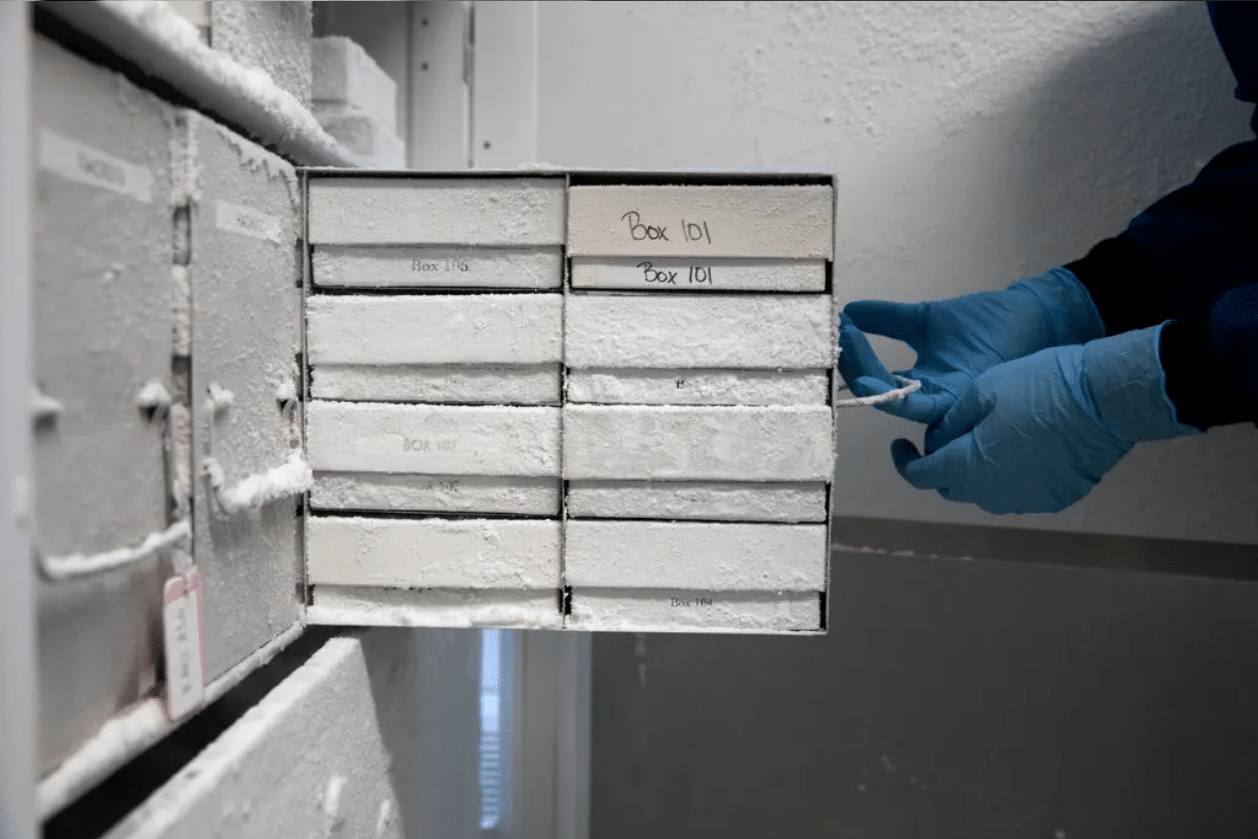We are excited to share that the New York Times has published an article about OGL and our Genome Resource Rescue program. The article highlights 466 frozen flatworm fragments donated to OGL by Dr. Marian Litvaitis prior to her retirement, and our ongoing work with Dr. Bill Detrich who is donating samples of rare Antarctic fish to the OGL collection.
“Preserving collections for posterity is a tenet of good science,” said Dr. Distel. We hope this article can encourage scientists to make plans for their collections after retirement and teach non-scientists about the work that goes on behind the scenes!
Read more about the Genome Resource Rescue program and why this work is important here: nytimes.com/2022/03/08/science/frozen-flatworm-retriement.html

Hannah Appiah-Madson shows where flatworm fragments from Dr. Litvaitis are stored in a freezer at OGL. (Photo Credit: Kayama Szymczak, New York Times)
Interested in helping OGL rescue more valuable collections? Support us here.
